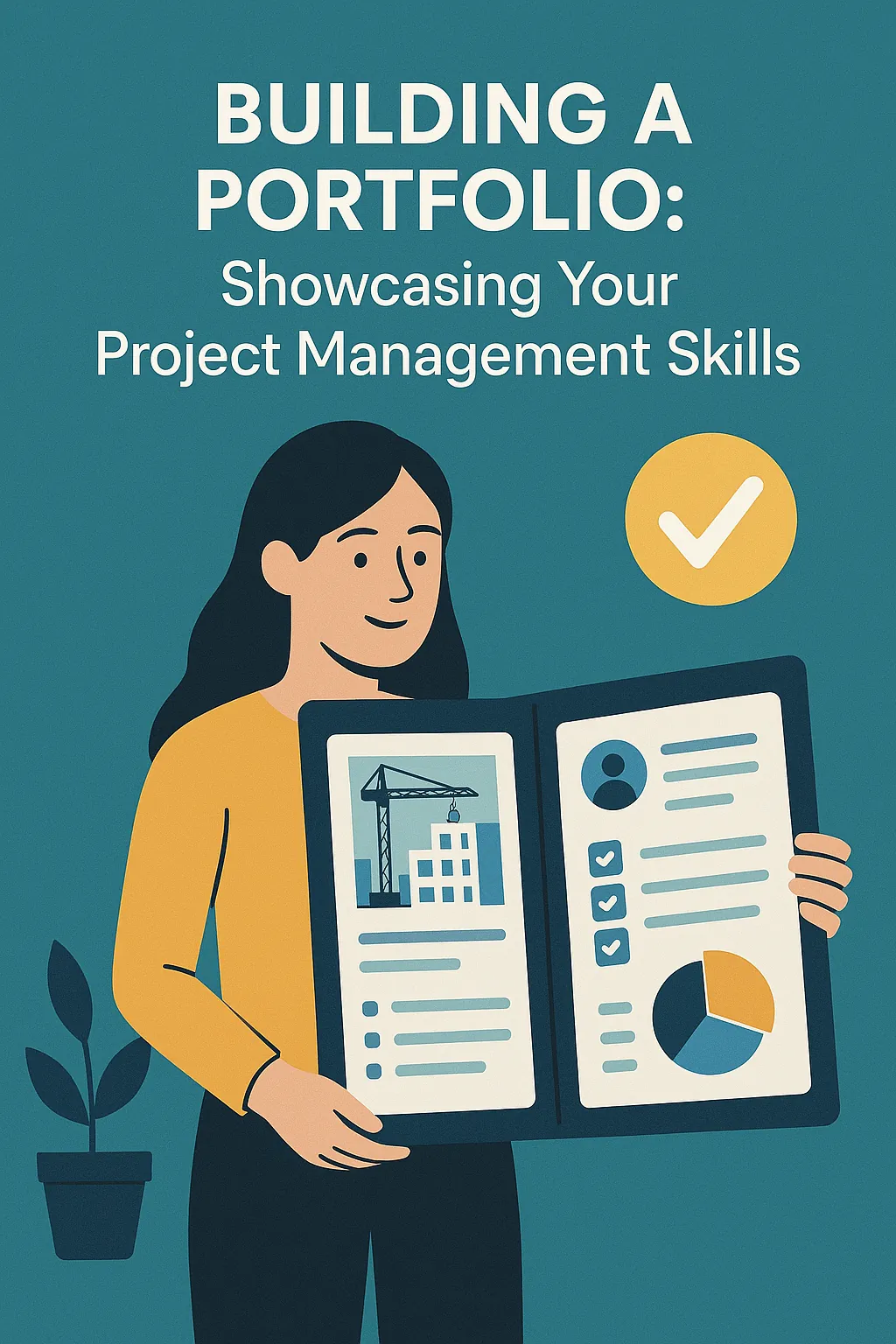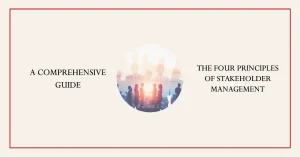Introduction
Entering the field of project management can be an exciting yet challenging endeavor, especially for those seeking entry-level positions. Project management is a vital discipline that ensures projects are completed on time, within scope, and on budget, making it essential across various industries. As organizations increasingly rely on skilled project managers to navigate complex projects, the demand for qualified professionals continues to grow. This relevance underscores the importance of effectively preparing for interviews, as they serve as a critical gateway to securing your first role in this dynamic field.
Interviews are not just a formality; they are a crucial opportunity for candidates to demonstrate their qualifications, skills, and fit for the role. For entry-level job seekers, the interview process can be particularly daunting, as it often involves showcasing not only your academic background but also your potential to contribute to a team and manage projects effectively. Understanding the nuances of project management interviews can significantly enhance your chances of success.
In this blog post, we will explore essential tips and tricks for preparing for your first project management interview. We will cover key strategies such as familiarizing yourself with project management terminology, preparing to discuss your past experiences using the STAR method, and understanding the specific requirements of the job you are applying for. By the end of this guide, you will be equipped with the knowledge and confidence needed to ace your interview and take the first step toward a rewarding career in project management.
Understanding the Project Management Role
Entering the field of project management can be an exciting opportunity for job seekers, especially at the entry-level. To effectively prepare for an interview in this domain, it is crucial to understand what project management entails, the expectations for entry-level candidates, and the skills required to succeed.
Definition and Key Responsibilities of a Project Manager
A project manager is responsible for planning, executing, and closing projects while ensuring that they are completed on time, within scope, and within budget. Key responsibilities typically include:
- Project Planning: Developing a detailed project plan that outlines the scope, objectives, timelines, and resources required.
- Team Coordination: Leading and coordinating team members to ensure that everyone is aligned with the project goals.
- Monitoring Progress: Tracking project milestones and deliverables, making adjustments as necessary to stay on track.
- Stakeholder Communication: Regularly updating stakeholders on project status, risks, and changes to the plan.
- Risk Management: Identifying potential risks and developing strategies to mitigate them throughout the project lifecycle.
Understanding these responsibilities will help candidates articulate their readiness for the role during interviews.
Common Skills and Competencies Required for Entry-Level Positions
Entry-level project managers are expected to possess a blend of technical and soft skills. Some of the most important competencies include:
- Communication Skills: The ability to convey information clearly and effectively to team members and stakeholders is crucial.
- Organizational Skills: Strong organizational abilities help in managing multiple tasks and priorities efficiently.
- Problem-Solving Skills: Being able to identify issues and develop solutions is essential in navigating project challenges.
- Teamwork and Collaboration: Working well with others and fostering a collaborative environment is vital for project success.
- Basic Technical Knowledge: Familiarity with project management tools and software can be beneficial, even at an entry-level.
These skills not only enhance a candidate’s profile but also demonstrate their potential to contribute positively to a project team.
Overview of Project Management Methodologies
Familiarity with various project management methodologies is important for candidates, as different organizations may employ different approaches. Here are a few common methodologies:
- Agile: This iterative approach focuses on flexibility and customer satisfaction, allowing teams to adapt to changes quickly. Agile is particularly popular in software development and emphasizes collaboration and continuous improvement.
- Waterfall: A more traditional methodology, Waterfall follows a linear and sequential approach where each phase must be completed before moving on to the next. This method is often used in construction and manufacturing projects.
- Scrum: A subset of Agile, Scrum is used for managing complex projects by breaking them into smaller, manageable parts called sprints. It emphasizes teamwork, accountability, and iterative progress.
Understanding these methodologies will not only prepare candidates for interview questions but also help them align their skills with the expectations of potential employers.
By grasping the definition, responsibilities, required skills, and methodologies associated with project management, job seekers can better position themselves for success in their interviews. This foundational knowledge will enable them to demonstrate their understanding of the role and their readiness to contribute to a project management team.
Researching the Company and Position
When preparing for your first project management interview, conducting thorough research on the company and the specific role is crucial. This not only helps you tailor your responses but also demonstrates your genuine interest in the position. Here are some key points to consider:
- Finding Information About the Company’s Project Management Practices: To understand how a company approaches project management, look for resources such as their official website, annual reports, and case studies. Pay attention to their project management methodologies (e.g., Agile, Waterfall) and any certifications they may hold. This knowledge will allow you to align your answers with their practices and show that you are familiar with their operational style [1].
- Understanding the Specific Project Management Tools and Software Used by the Company: Research the tools and software that the company utilizes for project management. This could include platforms like Microsoft Project, Trello, Asana, or Jira. Familiarizing yourself with these tools can give you a competitive edge, as you can discuss your experience with similar software or express your willingness to learn [2]. Additionally, mentioning specific tools during the interview can demonstrate your preparedness and technical knowledge [3].
- Identifying the Company Culture and Its Impact on Project Management: Understanding the company culture is essential, as it influences how projects are managed and executed. Look for insights on the company’s values, work environment, and team dynamics through employee reviews on platforms like Glassdoor or by engaging with current or former employees on LinkedIn. This information can help you frame your responses to reflect how you would fit into their culture and contribute positively to their project management team [4].
By focusing on these areas, you can effectively prepare for your project management interview, showcasing not only your skills and experiences but also your commitment to understanding the company and its unique project management landscape.
Preparing for Common Interview Questions
When preparing for an entry-level project management interview, it’s essential to anticipate the types of questions you may encounter. Here’s a guide to help you navigate this process effectively.
Common Project Management Interview Questions
- How do you define success for a project, and what metrics do you use to measure it?
- Can you describe your experience with project planning?
- How do you handle conflicts within a team?
- What tools or software are you familiar with for project management?
- Can you provide an example of a time you worked on a team project?
- How do you prioritize tasks in a project?
- Describe a challenging project you managed and how you overcame obstacles.
These questions are designed to assess your understanding of project management principles and your ability to apply them in real-world scenarios.
Structuring Responses with the STAR Method
To effectively answer these questions, consider using the STAR method, which stands for Situation, Task, Action, and Result. This structured approach allows you to present your experiences clearly and concisely:
- Situation: Briefly describe the context within which you performed a task or faced a challenge.
- Task: Explain the specific task you were responsible for in that situation.
- Action: Detail the actions you took to address the task or challenge.
- Result: Share the outcomes of your actions, emphasizing what you learned and how it benefited the project or team.
Using this method not only helps you stay organized in your responses but also ensures that you highlight your competencies effectively [2][6].
Showcasing Relevant Experiences
Even if you lack direct project management experience, you can still demonstrate your capabilities by discussing relevant experiences from academic projects, internships, or volunteer work. Here are some tips for showcasing these experiences:
- Select impactful examples: Choose two or three significant experiences that illustrate your skills in project planning, teamwork, or problem-solving.
- Focus on your role: Clearly articulate your contributions and the skills you utilized, even if the context was not strictly professional [3][4].
- Highlight transferable skills: Emphasize skills such as communication, leadership, and time management that are applicable to project management roles.
By preparing thoughtful responses to common questions and structuring them using the STAR method, you can approach your project management interview with confidence and clarity. This preparation will not only help you articulate your experiences but also demonstrate your readiness for the role.
Demonstrating Soft Skills
Technical skills are essential, but soft skills often play a pivotal role in determining a candidate’s success during interviews and in the workplace. Here are some key soft skills that aspiring project managers should focus on, along with strategies to effectively demonstrate them during interviews.
Key Soft Skills for Project Managers
- Communication: Effective communication is crucial for project managers, as they must convey information clearly to team members, stakeholders, and clients. This includes both verbal and written communication skills.
- Problem-Solving: Project managers frequently encounter challenges that require quick thinking and innovative solutions. Demonstrating a proactive approach to problem-solving can set candidates apart.
- Adaptability: The ability to adjust to changing circumstances and manage unexpected issues is vital in project management. Candidates should showcase their flexibility and willingness to embrace change.
- Emotional Intelligence: Understanding and managing one’s emotions, as well as empathizing with others, is essential for fostering a collaborative team environment. Emotional intelligence helps project managers navigate interpersonal dynamics effectively.
Examples of How to Demonstrate These Skills During the Interview
- Communication: Candidates can illustrate their communication skills by discussing specific instances where they successfully led a team meeting or presented a project update. They should emphasize clarity in their explanations and the ability to listen actively to others’ input [6].
- Problem-Solving: Sharing a detailed example of a past project where they faced a significant challenge and how they resolved it can effectively demonstrate problem-solving skills. Using the STAR (Situation, Task, Action, Result) method can help structure this response [4].
- Adaptability: Candidates might recount a situation where they had to pivot their project plan due to unforeseen circumstances. Highlighting the steps taken to adapt and the positive outcomes achieved can showcase their flexibility [8].
- Emotional Intelligence: Discussing experiences where they had to manage team conflicts or support a team member through a difficult time can illustrate emotional intelligence. Candidates should focus on how they recognized emotions in themselves and others and how they used that awareness to foster a positive team environment [5].
The Role of Emotional Intelligence in Project Management
Emotional intelligence is increasingly recognized as a critical component of effective project management. It enables project managers to build strong relationships, motivate team members, and navigate the complexities of team dynamics. During interviews, candidates should emphasize their ability to connect with others, understand diverse perspectives, and create an inclusive atmosphere. This not only enhances team performance but also contributes to successful project outcomes [7].
In summary, job seekers preparing for project management interviews should prioritize demonstrating their soft skills, particularly communication, problem-solving, adaptability, and emotional intelligence. By providing concrete examples and articulating their experiences effectively, candidates can significantly enhance their chances of securing an entry-level project management position.
Showcasing Relevant Certifications and Education
When preparing for an entry-level project management interview, effectively presenting your qualifications is crucial. Here are some key points to consider:
- Importance of Relevant Certifications: Obtaining certifications such as the Certified Associate in Project Management (CAPM) or the Project Management Professional (PMP) can significantly enhance your candidacy for entry-level roles. These certifications demonstrate your commitment to the field and your understanding of fundamental project management principles, which can set you apart from other candidates [2].
- Highlighting Educational Background: When discussing your educational background, focus on any degrees or coursework that relate directly to project management. This could include degrees in business administration, management, or any specialized project management programs. Be sure to mention specific courses that provided you with relevant skills, such as project planning, risk management, or team leadership [4].
- Discussing Online Courses and Workshops: In addition to formal education, any online courses or workshops you have completed can be valuable to mention. These can showcase your initiative to learn and adapt to the evolving demands of project management. Highlighting platforms like Coursera, LinkedIn Learning, or other reputable sources where you gained knowledge in project management tools and methodologies can further strengthen your profile [5].
By strategically showcasing your certifications, educational background, and any additional training, you can effectively present yourself as a well-prepared candidate for an entry-level project management position.
Asking Thoughtful Questions
When preparing for your first project management interview, one of the most impactful strategies is to ask thoughtful questions. This not only engages the interviewer but also showcases your genuine interest in the role and the organization. Here are some key points to consider:
- Types of Thoughtful Questions:
- Inquire about the specific responsibilities of the role. For example, you might ask, “Can you describe a typical day for someone in this position?” This question helps you understand the expectations and daily tasks associated with the job.
- Ask about the team dynamics by posing questions like, “How does the project management team collaborate with other departments?” This shows that you value teamwork and are interested in how you would fit into the larger organization.
- Importance of Company Culture and Growth Opportunities:
- Understanding the company culture is crucial for your long-term satisfaction and success. You could ask, “What values are most important to the company, and how do they influence the work environment?” This demonstrates that you are considering not just the job, but also the workplace atmosphere.
- Additionally, inquire about growth opportunities by asking, “What does the career path look like for someone in this role?” This indicates that you are thinking about your future within the company and are eager to develop your skills.
- Demonstrating Preparedness and Initiative:
- Asking insightful questions can significantly enhance your impression as a candidate. It reflects your preparedness and initiative, showing that you have done your homework about the company and the role. For instance, you might say, “I read about your recent project on [specific project]; could you share more about the challenges faced and how the team overcame them?” This not only shows your research but also your critical thinking skills.
By incorporating these thoughtful questions into your interview preparation, you can create a more engaging dialogue with your interviewer, making a lasting impression that could set you apart from other candidates.
Follow-Up After the Interview
Following up after a job interview is a crucial step that can significantly impact your chances of landing an entry-level project management position. A well-crafted thank-you email not only expresses your gratitude but also reinforces your interest in the role and highlights your qualifications. Here are some best practices and key points to consider when preparing your follow-up communication:
Best Practices for Writing a Thank-You Email
- Keep it Short and Sweet: Your thank-you email should be concise yet meaningful. Aim for a brief message that conveys your appreciation without overwhelming the recipient with too much information. A simple subject line like “Thank You for the Opportunity” can set the right tone for your email [1][4].
- Personalize Your Message: Tailor your email to the specific interviewer and the conversation you had. Mention something unique from your discussion to remind them of your interaction and show that you were engaged during the interview [3][8].
What to Include in the Email
- Express Gratitude: Start your email by thanking the interviewer for their time and the opportunity to discuss the role. Acknowledging their effort in the interview process is essential [3][7].
- Reiterate Your Interest: Clearly state your enthusiasm for the position and the company. This is your chance to reaffirm why you are a good fit for the role and how your skills align with the team’s needs [2][6].
- Highlight Key Qualifications: Use this opportunity to briefly mention a key point from your interview that showcases your qualifications. This could be a specific skill or experience that makes you a strong candidate for the project management role [5][7].
Timing and Etiquette for Follow-Up Communications
- Send Your Email Promptly: Aim to send your thank-you email within 24 hours of the interview. This demonstrates your eagerness and professionalism, ensuring that you remain fresh in the interviewer’s mind [1][6].
- Be Mindful of Tone: Maintain a professional tone throughout your email. While it’s important to be personable, ensure that your language reflects the professional nature of the role you are applying for [3][8].
- Follow Up Again if Necessary: If you haven’t heard back within a week or two, it’s acceptable to send a polite follow-up email inquiring about the status of your application. This shows your continued interest and initiative [6][7].
By following these guidelines, you can make a positive impression after your interview, reinforcing your candidacy for the entry-level project management position. A thoughtful follow-up can set you apart from other candidates and demonstrate your commitment to the role.
Conclusion
In conclusion, preparing for your first project management interview can be a daunting task, but with the right strategies, you can significantly enhance your chances of success. Here’s a recap of the key strategies discussed:
- Research the Role: Understand the specific requirements of the project management position you are applying for. Familiarize yourself with the tools and methodologies commonly used in the industry [12].
- Use the STAR Method: When answering behavioral questions, structure your responses using the Situation, Task, Action, and Result framework to clearly convey your experiences [14].
- Demonstrate Communication Skills: Effective communication is crucial in project management. Be prepared to showcase your ability to convey ideas clearly and collaborate with team members [4].
- Prepare for Common Questions: Anticipate typical project management interview questions and practice your responses. This will help you articulate your thoughts more confidently during the interview [12].
- Highlight Your Organization Techniques: Discuss your methods for managing tasks and priorities, as organizational skills are vital for project managers [4].
As you embark on this journey, remember to remain confident and persistent. The job market can be competitive, but your dedication and preparation will set you apart from other candidates. Embrace the learning process, and don’t hesitate to seek feedback after interviews to improve for the next opportunity.
Find out more about Shaun Stoltz https://www.shaunstoltz.com/about/.
This post was written by an AI and reviewed/edited by a human.



